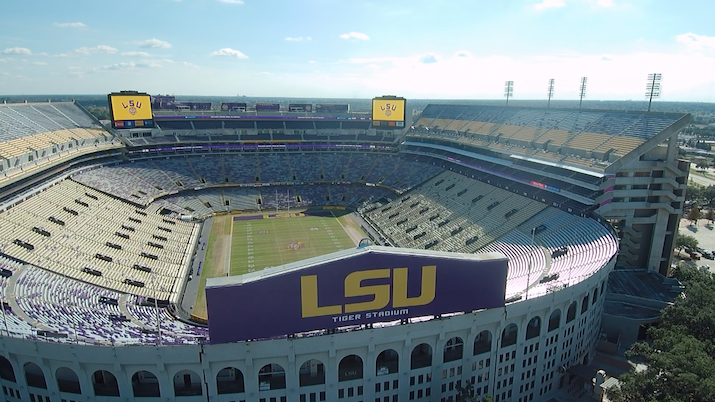Congress Launches Historic Stadium Caucus To Protect America’s Most-Treasured Stadiums
Non-partisan effort aims to preserve/enhance such venues as the Rose Bowl and Tiger Stadium
Story Highlights
Announced on Aug. 25 by U.S. Representatives Garret Graves (R–Louisiana) and Mark Pocan (D–Wisconsin), the bipartisan Historic Stadium Caucus will work on preserving the legacy and protecting the integrity of the country’s treasured venues while enhancing their capabilities to host world-class sports events and concerts for generations to come.
“When Tiger fans walk into Death Valley on Saturday nights, they do more than watch a football game,” said Graves, whose district includes Tiger Stadium, home of the LSU Tigers. “They walk into a 99-year-old local icon that supports our regional economy. Every bowl of jambalaya scooped and Tiger Dog served injects jobs and resources into our community.”
The caucus is intended to bring much-needed attention to historic stadiums that were among the first major athletic venues in the U.S. and continue to host some of sport and entertainment’s marquee events each year. Furthermore, the sponsors state, these historic venues are economic catalysts for local economies and emergency-preparedness centers for local, county, and state agencies.
“Historic stadiums, like Camp Randall Stadium, where the University of Wisconsin-Madison Badgers play, serve a vital role in our communities,” said Pocan, who district is home to the Badgers. “Not only are they where memories are made and young people get inspired to play sports, but they’re often hubs of economic activity.”
Among the stadiums targeted is the oldest football stadium in the country: University of Pennsylvania’s Franklin Field, which opened in 1895.
The Rose Bowl Stadium, built in 1922 in Pasadena, CA, has hosted five Super Bowl games, gold-medal matches for two Olympic Games with a third coming in 2028, two FIFA World Cup Finals, the 1982 Army-Navy Game, UCLA Football since 1982, and the annual Rose Bowl Game since 1923. Los Angeles Memorial Coliseum, now in its centennial year, will host its third Olympic Games in 2028, having hosted in 1932 and 1984. The Rose Bowl and Memorial Coliseum will become the first venues in history to host the Olympic Games three times.
Wisconsin’s Camp Randall Stadium has been home to the Wisconsin Badgers football team since 1917 and witnessed the rise of football icons like Heisman Trophy winner Alan Ameche and J.J. Watt. LSU’s Tiger Stadium, entering its centennial season in 2024, has seen multiple NFL superstars jumpstart their careers, from quarterbacks Y.A. Tittle in the 1940s to Joe Burrow in the 2010s.
At the launch, 18 of the most iconic college football venues are committed to participating in the Historic Stadium Caucus:
- Beaver Stadium (Penn State University, State College)
- Camp Randall Stadium (University of Wisconsin, Madison)
- Cotton Bowl (Dallas)
- Davis Wade Stadium (Mississippi State University, Starkville)
- Franklin Field (University of Pennsylvania, Philadelphia)
- Husky Stadium (University of Washington, Seattle)
- Jordan-Hare Stadium (Auburn University, Auburn, AL)
- Los Angeles Memorial Coliseum (University of Southern California
- Memorial Stadium (University of California, Berkeley)
- Memorial Stadium (University of Illinois, Champaign)
- Memorial Stadium (Clemson University, Clemson, SC)
- Nippert Stadium (University of Cincinnati)
- Rose Bowl Stadium (Pasadena)
- SJSU Spartan Stadium (San Jose State University, San Jose, CA)
- Tiger Stadium (Louisiana State University, Baton Rouge)
- Vaught–Hemingway Stadium at Hollingsworth Field (University of Mississippi, Oxford)
- Wallace Wade Stadium (Duke University, Durham, NC)
- Yale Bowl (Yale University, New Haven, CT).
For more information on the Historic Stadium Caucus, contact:
Rep. Pocan: Erin Schnell at [email protected] or 202-225-2906
Rep. Graves: Logan De La Barre-Hays at [email protected] or 202-225-3901
For more information on America’s historic stadiums, contact Rose Bowl Legacy Foundation President Dedan Brozino at [email protected] or 626-577-2540

